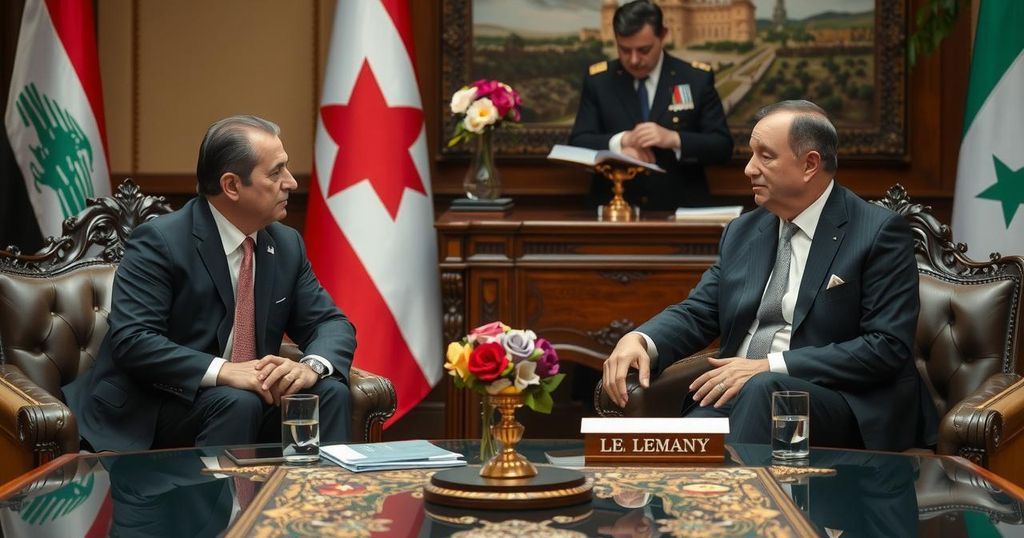Lebanon and Syria Discuss Long-Term Relations and Border Security

Lebanon’s PM Najib Mikati visited Syria for the first time in 15 years to discuss border security and smuggling issues with Syria’s de facto leader Ahmed al-Sharaa. Both leaders are committed to establishing committees to enhance cooperation, especially regarding the significant number of Syrian refugees in Lebanon and the impact of smuggling between the two nations. There is optimism for strengthening bilateral relations following recent political developments in Lebanon.
Lebanon’s caretaker Prime Minister Najib Mikati recently conducted a significant visit to Damascus, marking the first official trip by a Lebanese prime minister to Syria in fifteen years. During a joint press conference with Syria’s de facto leader Ahmed al-Sharaa, Mikati emphasized the commitment of both nations to collaborate on securing their borders, as well as addressing key issues including smuggling and financial matters related to Syrian deposits in Lebanese banks. Al-Sharaa expressed optimism for strengthening “long-term strategic relations” between Syria and Lebanon following Lebanon’s presidential elections.
The leaders agreed to establish bilateral committees aimed at tackling cross-border smuggling—a critical issue given the historical context of weapons and drug trafficking from Syria into Lebanon. Al-Jazeera’s Hamza Mohamed noted the importance of addressing smuggling in the discussions, particularly given Lebanon’s porous eastern border. Hezbollah, the Iran-aligned Lebanese group, has had a complex relationship with Syria, providing support to President Bashar al-Assad during Syria’s civil strife, yet has faced setbacks that have weakened its influence.
In addition, there was a focus on the challenge of Syrian refugees in Lebanon, with approximately 1.5 million refugees currently residing in the country, a situation exacerbated by Lebanon’s struggling economy. President Joseph Aoun of Lebanon indicated that there exists a historic opportunity for a constructive dialogue with Syria, suggesting a potential shift in relations that could stabilize the region.
The recent meeting between Lebanon and Syria’s leaders underscores a critical moment in a historically complex relationship between the two nations. For decades, Syria wielded considerable influence over Lebanon, particularly during its military presence that lasted until 2005. The ongoing economic crisis in Lebanon, compounded by the Syrian refugee situation stemming from the civil war, has necessitated renewed diplomatic engagements. The discussions highlighted the need for collaboration to combat smuggling, delineate borders, and manage refugee issues, which are pivotal to both nations’ stability.
The meeting between Prime Minister Najib Mikati and al-Sharaa represents a thaw in Lebanon-Syria relations after years of tension. With both leaders expressing a commitment to addressing pressing bilateral issues such as border security and the refugee crisis, there is potential for a renewed partnership. However, historical complexities and regional challenges will continue to influence the dynamics of their relationship moving forward.
Original Source: www.aljazeera.com








